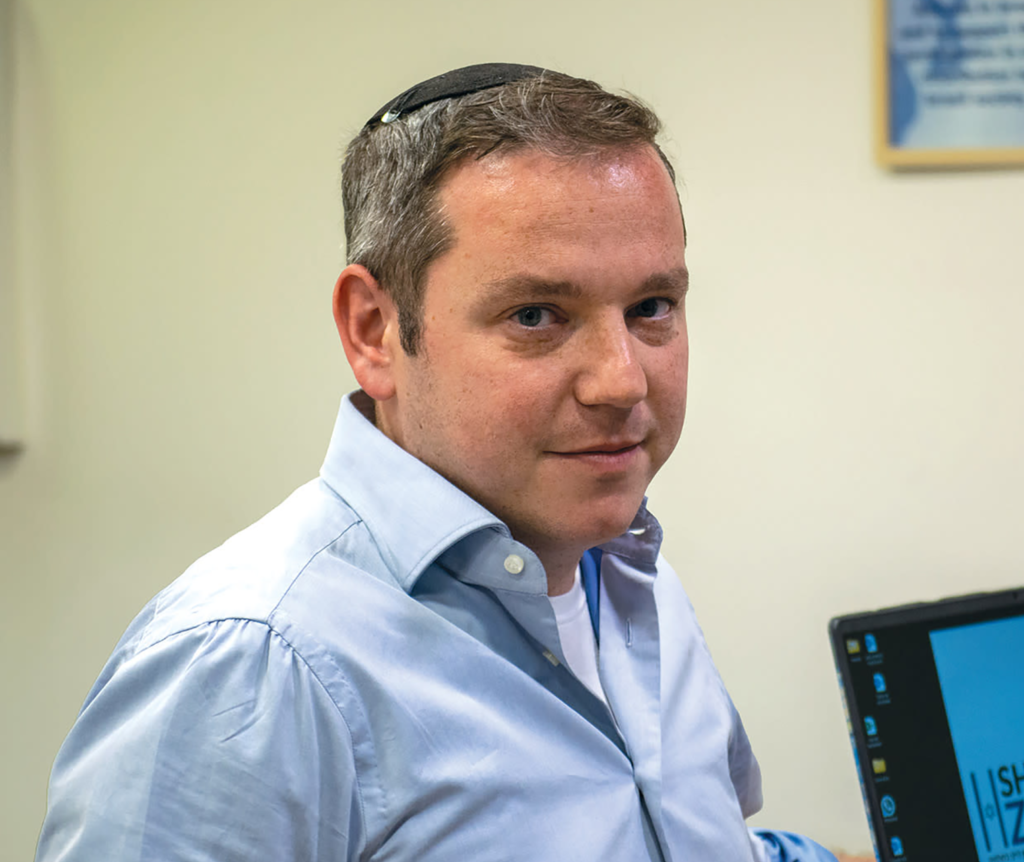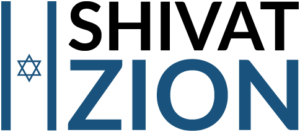Jerusalem Post: Shivat Zion - Helping Israel´s Non-English Speaking Olim
JUNE 9, 2023 19:46
Imagine you’re a Jew from the Netherlands or Portugal, Spain, Germany or Italy. You’re eligible to make aliyah, but you speak neither English nor Hebrew.
The vast resources of Nefesh B’Nefesh, which was founded in 2001, are focused on the English-speaking countries, where the majority of Diaspora Jews still live, such as the United States, Canada and the United Kingdom.
Additionally, during his tenure as chairman of the Jewish Agency, Natan Sharansky announced that aliyah would no longer be the agency’s highest priority. As a result, efforts to promote aliyah worldwide have been significantly curtailed since 2010.
The reality of this one-two punch created a void for people making aliyah from Western Europe and Latin America.
Helping non-English speakers from Western Europe, Latin America move to Israel

“We only focus on countries that don’t have a professional framework in place.”
Shraga Evers
Into the void emerged Shivat Zion (shivat-zion.com), the brainchild of Efrat resident Shraga Evers, founder, chairman and CEO, who made aliyah from the Netherlands.
“We went into a vacuum where there is no support,” said Mark Lehrman, Shivat Zion’s task force director.
“We only focus on countries that don’t have a professional framework in place,” Evers noted.
In active operation since February 2022, Shivat Zion, with a staff of seven, is “a nonprofit start-up,” according to Lehrman. The information on Shivat Zion’s website is available in six languages: Spanish, Portuguese, German, Dutch, Italian and English.
Evers estimates that, outside of France, which has a Jewish population of approximately 450,000, there are “a couple of hundred thousand people in the core Jewish population [we are targeting], and there is 50% to 75% assimilation in the countries we are working with. The number [of the unaffiliated] is much higher in Germany. And once they are unaffiliated, it becomes hard to track them.”
Since Shivat Zion opened its doors, 1,500-2,000 olim have been benefited from its services, Evers estimated. The organization is still quite young and is not yet known by most olim. Nevertheless, Evers reported that it is seeing steady growth.
All services, including the help desk, are provided to prospective and recent olim free of charge, and all the information it has gathered is translated into all six languages. Evers and Lehrman want olim to know that “a place that speaks their language exists and can help them deal with the myriad challenges that aliyah presents.” Lehrman commented that this support, provided in their native language, is vital for successful aliyah and absorption into Israel.
Besides Nefesh B’Nefesh and the Jewish Agency, there are other players in the aliyah field, such as the relatively newly minted Yad L’Olim, which, according to its website, helps English, Ukrainian and Russian olim “navigate the complex government bureaucracy in Israel.” Shivat Zion cooperates with all of them to share information.
“We try to cooperate with as many organizations as we can that can deliver a partial or full solution for olim with general or specific subjects. With regard to Yad L’Olim specifically, we are sending people to the medical database (Shira Pransky Project), which we see is very helpful in understanding the Israeli medical system. The issue is that it’s only in English. When it’s relevant and [the clients] speak English, we do refer.”
Evers explained that there used to be local, grassroots organizations in Israel to help with absorption, but they are hardly functioning anymore. And the organizations that promote aliyah in Western Europe and Latin America are, according to Evers, far less active than they used to be.
“A lot of [older, grassroots organizations] say they are doing things [to help olim], but they are not so effective [anymore],” he said.
Evers explained that, by contrast, “Israeli society is so engaged to help. We work with youth movements because they are in every neighborhood, to get to the parents – to get volunteers for host and adoptive families. We find a lot of willingness [to help] and not a lot of awareness of what olim go through.”
Shivat Zion provides “everything they need from the moment they consider aliyah to the moment they are settled – practical issues, as well as emotional issues. We make sure people get the rights to which they are entitled.
“It’s very important to provide support in their mother tongue,” he emphasized.
Shivat Zion serves as an information hub. Evers estimates that 10% of his organization’s efforts are spent on encouraging aliyah, and the other 90% provide language-specific information and connections to olim once they’ve begun the aliyah process.
“We start with encouraging aliyah. We bring the subject of aliyah to the minds of the Jews abroad through online marketing, making sure it stays on their mind,” Evers explained.
Making information accessible is the organization’s main goal, so once it has helped a client with a specific problem, it writes a user-friendly guide with simple text and illustrations based on the research it did, and makes it available in the six languages it supports.
Lehrman said that among Shivat Zion’s client population, there are a lot of aliyah status issues. One client who was getting very frustrated thanked Lehrman just for listening to his complicated story because “people don’t have anyone to talk to.”
Shivat Zion provides “a lot of information and also responds to ad hoc needs – medical, social, governmental.” For example, a client wanted to meet people in her new community, so Lehrman and his team found her a host family.
Shivat Zion’s niche is working with small Jewish communities that no one else is serving. It’s a complicated operation, dealing with so many languages and cultures. Nevertheless, when a question comes in, Shivat Zion strives to respond that same day or the next day, providing an answer in the client’s mother tongue. And the advice it gives is often very country specific.
“Knowledge is power. We are making the information accessible in their language.
“We are trying to get people what they need, with a very high standard of personal care,” Lehrman explained.
Evers raises all operating funds for Shivat Zion privately, although it is gearing up for requesting government assistance.
THE INSPIRATION for Shivat Zion came from Evers’s own aliyah experience. He grew up in Amsterdam, the capital of the Netherlands.
“I grew up in a Jewish community that was becoming smaller and smaller,” he recounted.
His father was a rabbi of an Orthodox synagogue. Evers attended private Jewish schools and graduated at 16. He came to Israel, studied in Yeshivat Hakotel, and then joined the IDF and served in the Golani Brigade.
After getting married, he returned to the Netherlands so his wife could complete her schooling. By the time the couple made aliyah, they had a one-year-old daughter. Coming from the Netherlands, Evers reported, the young family got “no support whatsoever with absorption.”
“Being an active Zionist, I always encouraged people to make aliyah,” he said. His idealism was challenged from both the Right and the Left.
“In Western European countries, aliyah is not spoken of. [The religious Jewish communities there] believe in building local communities. The Left doesn’t see Israel as their homeland. People also live convenient lives abroad.”
One of the biggest challenges the Shivat Zion staff faces is understanding the cultural mindset of the people they are committed to helping. Every culture presents its own challenges that have to be navigated.
For example, Evers noted that “people from Latin America are suspicious of government services, and in their culture they don’t ask questions. [Also], there are a lot of false conversions from Italy. Our staff is learning along the way as we gain experience.”
Some olim want to shop around for answers. Some don’t tell the whole picture of their family situation. Rather, they reveal it piece by piece, further complicating Shivat Zion’s work.
Asked about Shivat Zion’s plans for future growth, Evers preferred to focus on the present. “Our main concern is to make sure that every oleh or olah gets what he or she needs to make aliyah and stay in Israel. Our aim is to serve every country that doesn’t have support.”
Evers and Lehrman shared two cases where their help made all the difference.
In one case, a prospective olah had three conversions. She applied for aliyah, and the process was stopped for reasons no one explained. A Shivat Zion adviser discovered that the issue was that her passport was close to expiring.
“No one bothered to check on what was holding it up until we got involved,” Lehrman related.
In another case, a woman in her 60s who was alone in Israel needed major surgery urgently. She had no local family. And she was, understandably, very scared. No one properly explained to her about the surgery.
“We made sure to connect her to the hospital social worker to explain the surgery to her. We arranged for home care with the National Insurance Institute and recruited a local volunteer to help her when she returned home,” Lehrman elaborated.
“People should know there is an address where they can turn to to get the information they need in their own language. No one is doing what we’re doing,” Lehrman concluded.

